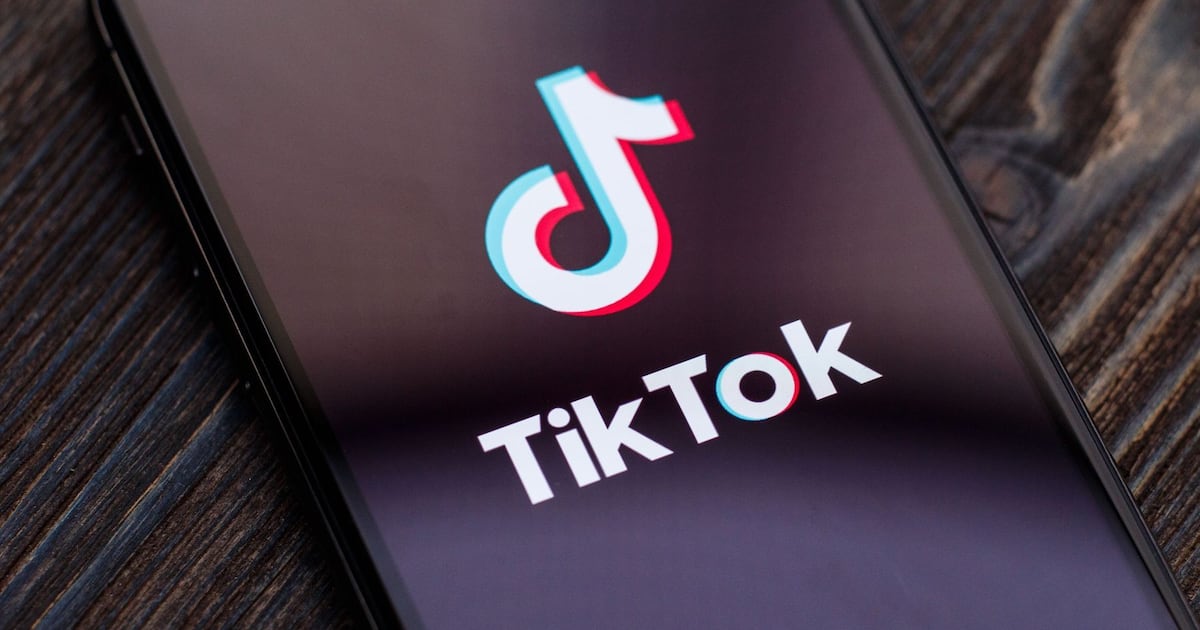Fashion and beauty brands are watching closely as TikTok fights a desperate battle to halt its impending ban.
The app is scrambling to push back the January 19 deadline for parent company ByteDance to sell it to a buyer the US deems acceptable. If it fails, come that date, internet hosting services and app stores such as Appleâs and Googleâs will face significant penalties for continuing to support the app, effectively freezing TikTok in its tracks and causing it to descend quickly into obsolescence.
On Monday, the company filed for an emergency injunction asking that the ban not take effect before the US Supreme Court has a chance to review its appeal of last weekâs ruling upholding the forced sale. Even a temporary ban would be devastating to its business, it said in its filing, which requested a decision by December 16. A one-month shutdown could cause it to lose roughly one-third of its daily users in the US and 29 percent of its targeted global advertising revenue for 2025.
Though the ban centres on issues of US national security, it will have undeniable implications for fashion and beauty businesses. While TikTokâs main value to brands is still as a way to market their products to its users, including 170 million of them in the US, many also now sell through TikTok Shop, the in-app e-commerce offering that launched in September 2023.
This holiday season, TikTok Shop sales have been surging. In November, its sales growth outpaced rivals like Temu and Shein, albeit off a smaller base, according to an analysis of credit-card data by Earnest Analytics. TikTok itself announced Black Friday sales tripled on the app this year to more than $100 million, with top sellers including Crocs and Estée Lauder. A Reuters analysis last week also concluded that TikTok Shop appeared to be gaining e-commerce market share in the US through the holidays.
âIf TikTok is banned, retailers in the beauty and fashion sectors will be severely impacted,â said Coresight Research analyst Sunny Zheng.
But whether TikTok can dodge that fate will depend on a few key factors.
TikTokâs Options
TikTok wants the Supreme Court to intervene and take up its case, saying it expects the justices will side with its argument that a ban violates freedom of speech. Thatâs unlikely, however.
Matthew Schettenhelm, an analyst for Bloomberg Intelligence, wrote in a research note Friday cited by The Washington Post that the Supreme Court has often agreed with the writers of the D.C. court opinion that upheld the ban, Douglas Ginsburg and Neomi Rao. In the opinion, Ginsburg wrote that the First Amendment protects free speech, and with the TikTok law, the US government actually sought to protect that right from a foreign adversaryâs interference and limit its ability to gather data on Americans.
âThis is a sweeping loss for TikTok that will be difficult to undo,â Schettenhelm said.
There is still the option for ByteDance to divest TikTok, though the company has said explicitly that it wonât do so, and TikTok has said it wouldnât be technologically possible before the ban comes into force, given its deep integration with ByteDance.
Perhaps TikTokâs last and greatest hope is Donald Trump, who takes office as US president on January 20, the day after the ban is scheduled to begin. As a candidate, he said he would save TikTok, reversing his position during his first presidency when he led the charge to block the app. TikTok cited the president-electâs statement as more reason to grant its petition for an emergency injunction, stating âIt would not be in the interest of anyone â not the parties, the public, or the courts â to have emergency Supreme Court litigation over the Actâs constitutionality, only for the new Administration to halt its enforcement mere days or weeks later.â
While Trump does have a few options available if he wants to lift the ban once heâs in office, unilaterally repealing the law, which passed with bipartisan support, isnât one of them. That would take an act of Congress, which may not prove eager to undo legislation it just passed in April.
On the other hand, he could direct the justice department to simply not enforce it, leaving companies like Apple, Google and web service providers to decide whether to trust that they wonât be penalised for flouting a standing law.
But Alan Rozenshtein, a law professor at the University of Minnesota Law School, told The New York Times in November that he thinks the most probable route would centre on language in the law that lets the president decide whether ByteDance has sufficiently freed TikTok from Chinese control. Under that scenario, ByteDance could make some adjustments to TikTok that could let Trump say the company had met his demands, keeping TikTok alive and allowing Trump to claim credit for resolving the issue â something heâs always been fond of.
Whatever happens, fashion and beauty brands are among the businesses that will feel the impact, particularly when it comes to sales on TikTok Shop. While more than 60 percent of the merchants on the app are sellers like those on Temu importing goods from China, according to Coresightâs Zheng, the remaining 40 percent or so are a mix of Western retailers, content creators and small businesses. Zheng pointed out that brands such as Tarte Cosmetics, Charlotte Tilbury and E.l.f. have boasted strong sales in the channel, and in a small survey earlier this year, Coresight found that beauty and fashion were the categories consumers bought most on TikTok Shop.
If brands havenât started planning for what theyâll do in the event of TikTok shutting down, even temporarily, they may want to. Many have been diversifying their channels in recent years. Already, a number of creators are asking followers to find them on other networks, such as Instagram and YouTube.

